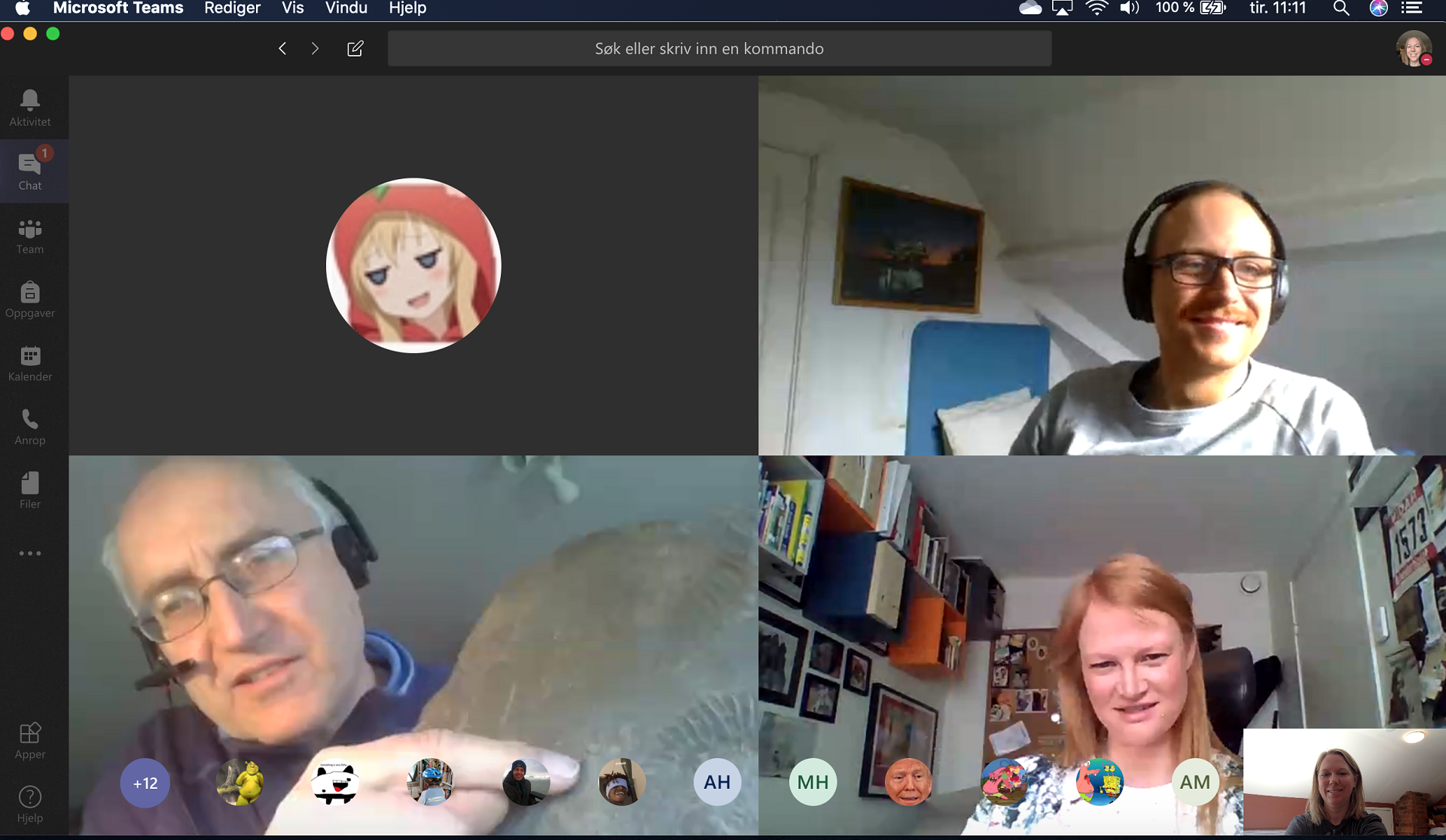NPD uses video to share oil and climate info with lower secondary school in Oslo

Andreas Tomasgaard (top right) and Jan Stenløkk in the NPD enjoyed teaching the students together with teacher Hedda Greni.
4/17/2020 It all started with a phone call to the Norwegian Petroleum Directorate (NPD) from Hedda Greni, a teacher at Skullerud lower secondary school in Oslo. And ended up with a geologist and a chartered engineer from the NPD taking part in a two-period-long video conference to talk to the students in classes 9a and 9b about oil and the climate.
The 9th grade students at Skullerud school were working on studying business, industry and natural resources in their social sciences class. When the corona crisis hit and distance education was introduced, they were just about to embark upon studying the secondary industries, as well as oil and gas production.
Hedda got the idea for this video meeting between the students at Skullerud and the professionals at the NPD from her own studies. She was attending a seminar about using social media in the classroom when she heard about a teacher in Bergen who used video conversations in his lessons.
This allowed him to use people with different knowledge sets and a different perspective than the textbooks. The students had a chance to talk to people with first-hand experience, and to get answers to the questions that interested them most.
Good preparations
“Now that the students are at home and have to do their schoolwork alone, I want to offer teaching that can still spark their interest, and be interactive. I’m also concerned that students with weaker reading and writing skills might fall behind in a time like this, where so much of the school work is individual, without close follow-up by the teacher,” says Hedda.
Hedda started by giving her students some basic knowledge about the oil and gas industry. The students were then given the assignment of preparing questions for the two NPD employees, Jan Stenløkk and Andreas Tomasgaard.
The young students were given free rein to ask anything at all they were wondering about. The questions were sent to Jan and Andreas ahead of the classroom periods that were broadcast by video, so they could prepare themselves.
Positive students…
The Skullerud teacher has subsequently surveyed what the students thought about the exercise – and the response has been positive. A majority of the students think this was a good way to have lessons at home, and some of them even thought that this might also be a good idea in “normal” circumstances with teaching in the physical school.
Here are some of the comments from the students:
“I understood how oil is formed better than before the talk. And I learned that there’s a lot more diversity in the oil industry than I thought (geologists, lawyers, engineers, etc. working together).”
“I learned how important oil really is for Norway.”
“I liked hearing information from professionals who do this every day. One really interesting thing that I didn’t know before, was that Norway helps other countries develop the way they use the oil, like saving or making production more environmentally-friendly.”
...and positive professionals
Both Jan and Andreas thought it was exciting to talk with the lower secondary students from Skullerud. It came as no surprise that the young people were most interested in the topic of oil and the environment. Topics such as how Norway can continue to produce oil while we also know that we must reduce emissions.
“The hardest part is to give a simple explanation of complex contexts,” says Jan.
Both say this is something they would love to do again.
Questions from the young people
See a a selection of the questions the young students asked:
How is oil formed?
Why does Norway have a lot of oil and gas? What happens if we run out of oil?
How long will it take until the oil is all used up?
What are they doing on the oil platforms during the corona situation? Is anybody out there?
Now that corona has taken over everything, are they making money or losing money on the oil?
Is Norway’s future with, or without, oil production?
Will there be a good way to capture and store CO2 in the near future?
How are you affected by the climate activists and everyone who is against oil production – are there any new measures because of this?
Does Norway export almost all the oil, or do we keep most of it?
What do you think about the Green party’s (MDG’s) proposal – that no new exploration or production licences should be announced or awarded, including exploration blocks in predefined areas, the APA system?
Updated: 4/17/2020